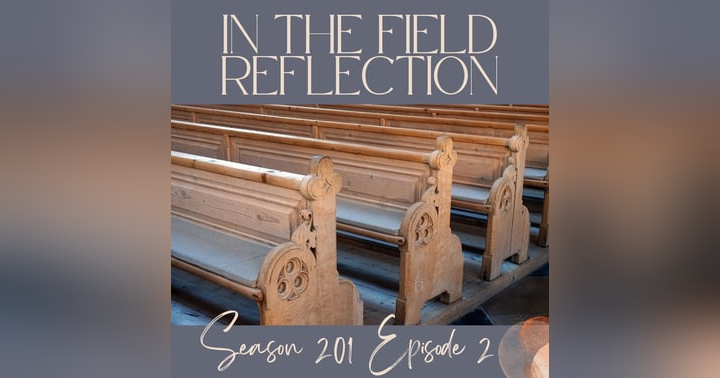Jeremiah's Lamentations: Finding Hope and Redemption Through Sorrow

Grief is a universal emotion that transcends time and culture. It is deeply human to feel sorrow, loss, and the weight of lived experiences. In the latest episode of our podcast, we delve into the depths of Lamentations, focusing specifically on the first chapter, a poignant reflection written by the prophet Jeremiah in the aftermath of Jerusalem’s destruction. This chapter serves as more than just an account of loss; it is a guide through grief, a poetic testimony that invites us to confront our own sorrows while finding redemption through sorrow and hope in God’s eternal presence.
Lamentations is traditionally attributed to Jeremiah, known as the Weeping Prophet, who passionately warned the people of Judah about the consequences of disobedience to God. Despite his attempts to turn their hearts back to God, Jerusalem fell to the Babylonian army in 586 BC. The resulting devastation left the city in ruins and its people exiled—a powerful backdrop that sets the tone for this deeply moving passage. The grief Jeremiah expresses highlights the not only the political disaster but also the spiritual crisis that ensued. Understanding these historical and emotional contexts is crucial to appreciating the depth of lament.
As we immerse ourselves in these verses, we encounter vivid imagery that evokes the pain of loss. Jeremiah personifies Jerusalem as a lonely widow, once vibrant and full of life but now desolate and mourning. His words articulate the profound sense of isolation that often accompanies grief. Through this lens, we are invited to acknowledge our own experiences of despair and loss. Recognizing that feelings of abandonment and sorrow are not just relatable but a shared human experience encourages us to delve deeper into our emotional landscapes and seek understanding and healing.
One of the striking features of Lamentations 1 is its poetic structure, laid out in an acrostic form where each verse begins with the successive letters of the Hebrew alphabet. This deliberate arrangement not only adds a musicality to the text but also reflects a completeness of grief. It can be seen as a tool for remembering and internalizing the profound emotions within the narratives of sorrow. For those who mourn, Lamentations offers a framework to articulate their pain, validating their experiences while gently guiding them towards emotional healing. In moments of despair, is it not comforting to know that every grief-filled tear can be laid before God?
As we explore the theological dimensions within the text, it becomes evident that God’s justice and mercy are central themes. The discipline experienced by Jerusalem serves as a reminder that God is not distant from our struggles; rather, His presence is ever near. Lamentations teaches us that while sin has consequences, God's love invites us—and even urges us—to return to Him for restoration and renewal. The understanding that God can turn sorrow into joy gives hope to those feeling lost in their despair.
In our podcast episode, we emphasize the importance of reflection as we navigate our own grief. The act of looking back at our experiences with an open heart allows for healing to begin. Lamentations challenges us to bring our struggles and heartache before God in faith. No matter the circumstances we've faced, each moment of sorrow has a place in our spiritual narrative, shaping us into who we are called to be. We learn that lamenting is not a sign of weakness but a drawing close to the heart of God.
Moreover, Lamentations 1 serves as a powerful reminder of community in grief. Jeremiah's words echo the necessity of supporting each other in times of mourning. His cries resonate beyond the individual, encompassing the collective lament of a people separated from their homeland and God. Today, as we grapple with personal losses, the wisdom gleaned from this chapter encourages us to express our pain while also reaching out to others, forging connections through shared experiences of hurt and healing.
Finally, we close the chapter by highlighting the unbreakable link between sorrow and hope within the text. The cry of lament becomes a doorway, leading us to the promise of restoration that follows. While the path of grief may feel like a heavy burden, Lamentations reminds us that we are not alone in our longing. It offers a sanctuary where we can pour out our hearts and find assurance in God’s unwavering love and faithfulness.
Join us as we journey through Lamentations, exploring the profound wisdom woven into its verses. Embrace your grief, seek healing, and know that hope can rise even from the ashes of sorrow. Understanding Lamentations helps us navigate the complexities of loss and see the bigger picture that God is writing in our lives.

















